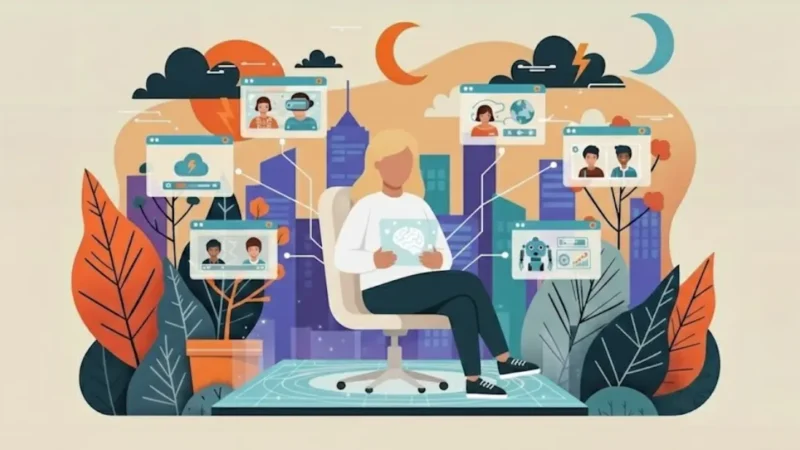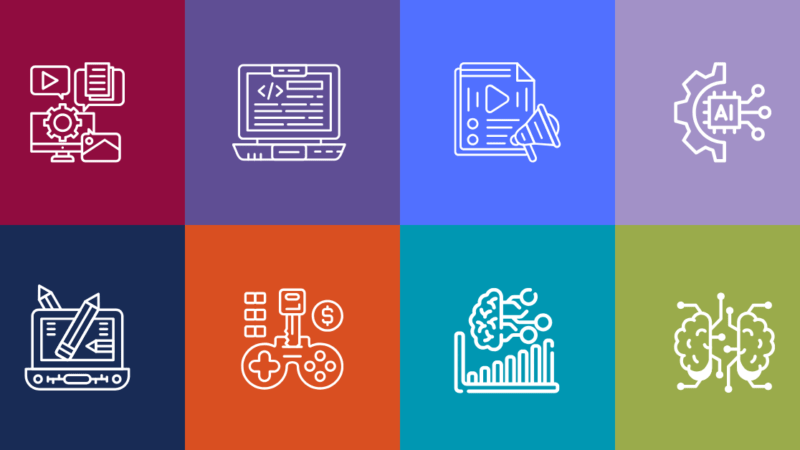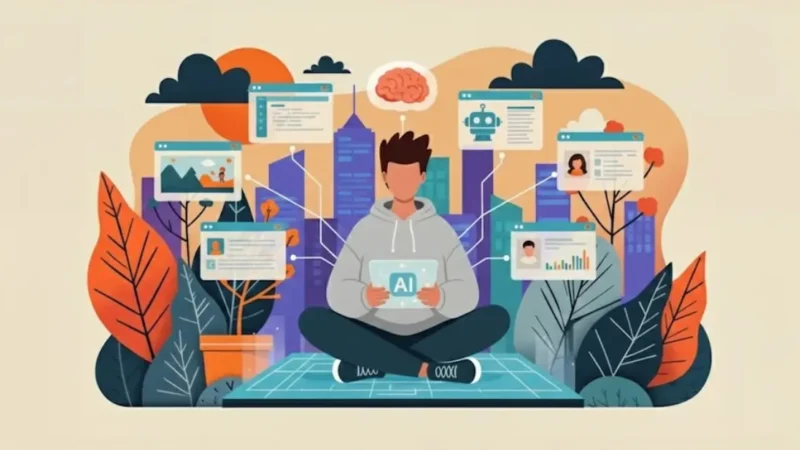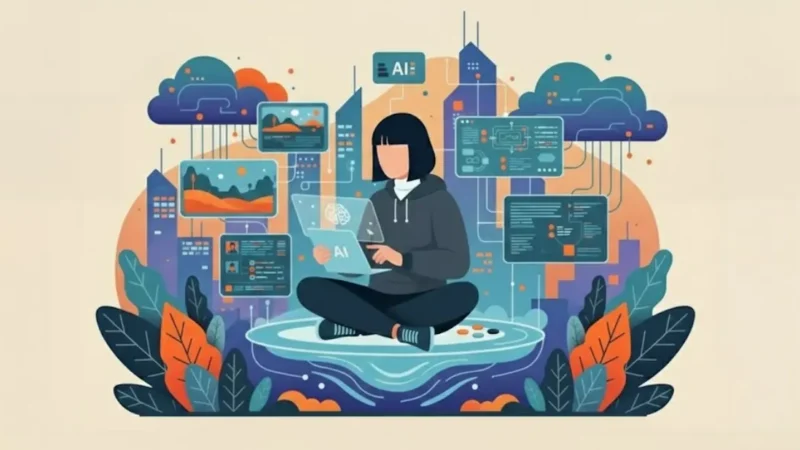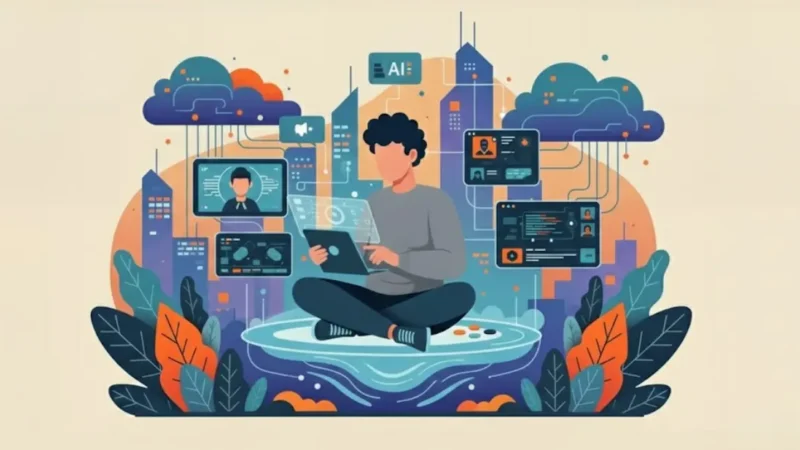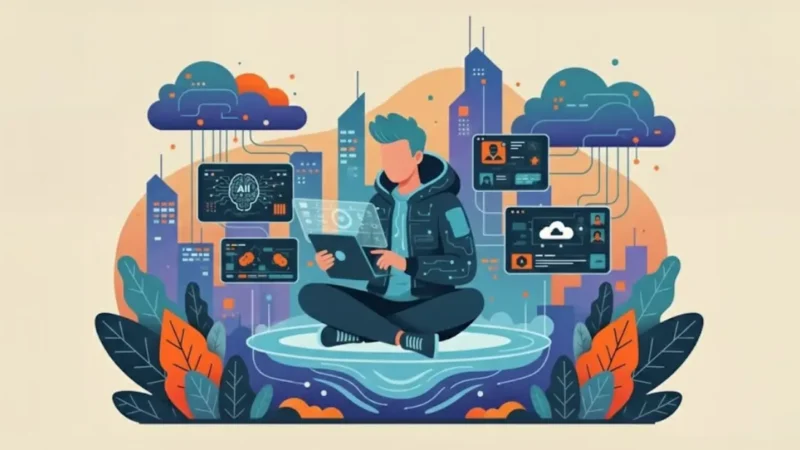Have Developers Used AI in Games? Yes – Here’s How It’s Shaping the Gaming Future
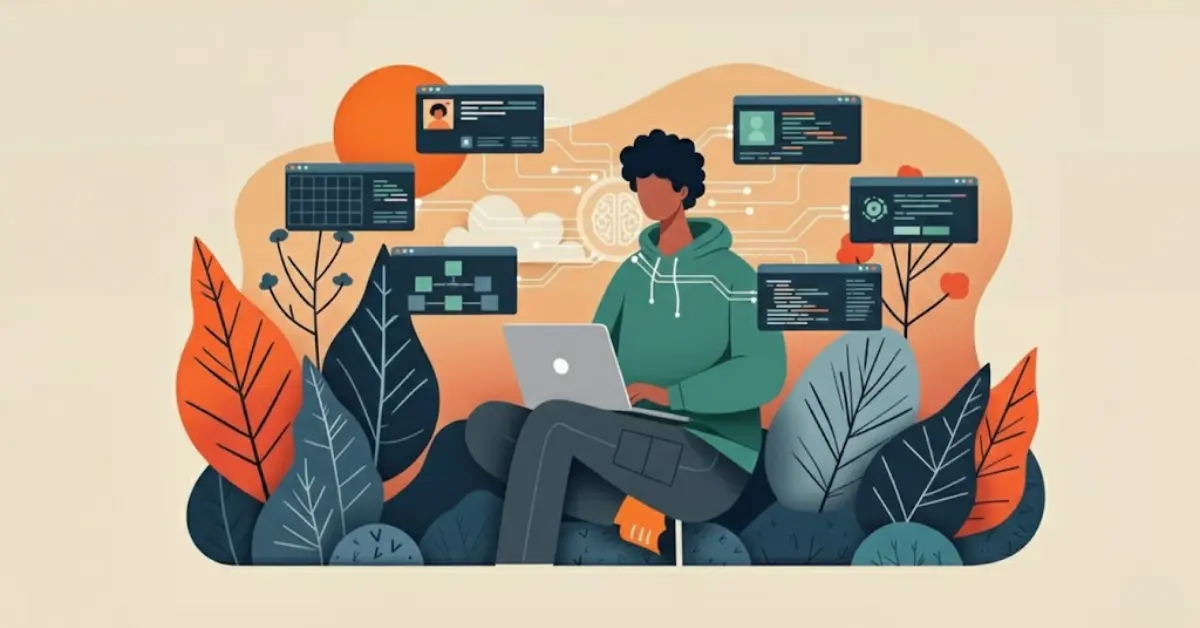
If you think AI in gaming is a recent trend, you might be surprised. Developers have used artificial intelligence as a secret ingredient in your favorite games for over 40 years. It powered the simple ghosts in Pac-Man and now drives the hyper-realistic worlds of today. AI is the unseen player working behind the scenes.
This post explores the past, present, and revolutionary future of AI in gaming. We will show you how it works, what it does, and how it builds the next generation of interactive entertainment.
Key Takeaways
- AI is Not New: Artificial Intelligence has been a fundamental part of game development for over 40 years, starting with simple rule-based enemies in classic arcade games.
- Core Modern Applications: Today, AI is most commonly used to create intelligent Non-Player Characters (NPCs), generate vast game worlds through Procedural Content Generation (PCG), and automate game testing.
- The Generative AI Revolution: The next wave of innovation is Generative AI, which will enable dynamic, unscripted narratives, hyper-personalized player experiences, and dramatically accelerated asset creation for developers.
- A Pillar of Development: AI is no longer just a feature; it is a foundational pillar of modern game design that enhances immersion, reduces development costs, and pushes creative boundaries.
The Unseen Player: A Quick History of AI in Games
So, have developers used AI in games? A resounding yes. The history of AI in game development is nearly as old as the industry itself. In 80s arcades, AI followed simple rules. It governed enemy behavior, like the ghosts in Pac-Man who each had a unique “personality.” This was basic but effective.
Games grew more complex. This demanded more from the AI. The rise of strategy games led to pathfinding algorithms. These allowed units to move around obstacles intelligently. This early AI computer game intelligence laid the groundwork for today’s dynamic systems. It proves that developers use AI to create challenging and believable experiences.
What is the application of AI in gaming today?
Today’s AI is not a simple rulebook. It is a fundamental tool that breathes life into digital worlds. Here are some of its most common applications.
A. Creating Believable Worlds with Smarter NPCs This is the most common application of AI in gaming. Non-Player Characters (NPCs) are no longer stiff robots. Advanced AI makes them dynamic inhabitants of the game world. Look at a masterpiece like Red Dead Redemption 2. Every NPC has daily routines. They remember your actions and react to the world. That level of immersion is pure AI artistry.
B. Building Endless Universes with Procedural Content Generation (PCG) How do studios create impossibly large worlds? Often, the AI builds them. Procedural Content Generation uses algorithms to automatically create game content. It can generate landscapes, levels, and quests. No Man’s Sky is the most famous example. Its AI generated a universe of over 18 quintillion planets. This is AI game development on a cosmic scale.
C. Speeding Up Development Behind the Scenes AI also works hard in artificial intelligence in game development. AI “bots” can play a game thousands of times. They automatically hunt for bugs, test game balance, and find exploits. They accomplish tasks in hours that would take human testers weeks.
The “How”: Which AI Technique Is Used for Game Playing?
What powers these intelligent systems? The core artificial intelligence for games relies on a few key techniques.
- Behavior Trees & FSMs: These are the “brains” for an NPC’s decisions. A Finite State Machine (FSM) gives a character simple states like idle, patrol, or attack. Behavior Trees are more advanced and allow for more complex and nuanced choices.
- Pathfinding (A* Algorithm): This technique lets a character find the best route from point A to point B. It intelligently navigates around any obstacles.
- Machine Learning: Here, the AI truly starts to think. Instead of following code, the AI learns by playing. It studies your tactics and adapts its strategy. It becomes a better opponent over time.
The Revolution is Here: How Generative AI Will Change Gaming
Everything we’ve discussed is the present. Generative AI is the spectacular future. This is where AI moves from executing tasks to actively creating. The impact of AI-driven game design will be transformative.
Imagine NPCs you can have full, unscripted conversations with. Picture storylines that change based on your unique moral choices. Generative AI tools already help developers create art, music, and code from text prompts. This will accelerate development. It will also empower smaller studios to dream bigger. Platforms like Roblox already pioneer this. They offer AI Roblox game creators AI-powered tools to build immersive experiences faster.
Hall of Fame: What Game Has the Most Advanced AI?
“Most advanced” is always debatable. However, critics praise a few games for pushing the boundaries of AI in video games.
- F.E.A.R. (2005): Its enemy AI works as a tactical squad. They don’t just charge. They flank, suppress, and react to your moves with terrifying coordination.
- The Last of Us (2013): People praise the AI for its emotional realism. Your companion, Ellie, acts believably. Enemies feel desperate and dangerously human.
- Alien: Isolation (2014): This game features a single, relentless Alien. A complex AI that learns from you powers its every move. It does not follow a script; it hunts you. This creates one of the most tense AI games experiences ever.
AI in Gaming by the Numbers
The impact of AI is not just anecdotal. It is a seismic shift in the industry. These statistics paint a clear picture of an AI-powered boom.
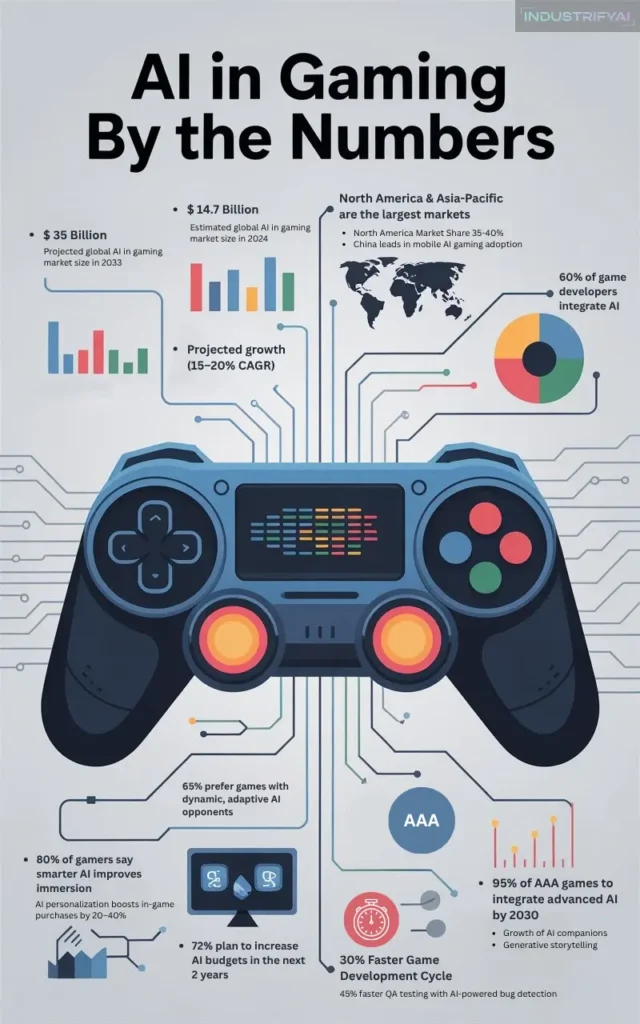
Conclusion: The Future is Intelligent
Have developers used AI in games? Yes, and it is now a fundamental pillar of modern game design. AI began as simple code. It has since evolved into a sophisticated partner. It can build worlds, create characters, and challenge players in ways we never thought possible.
The line between a scripted experience and a living digital world is blurring. As we look to the future, one thing is certain. The power of AI in gaming will build, imagine, and bring that future to life.
References
- Statistical projections are sourced from a 2024 industry report by PatentPC.

